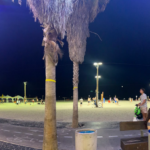The following interview with Francisco Gil-White provides deep insights into the historical, political, and social dynamics surrounding Jews and Israel today, alongside the broader issues of prejudice and propaganda targeting Jews over the last century.
Contributions of Jews to Western Civilization
Francisco Gil-White, a Mexican Catholic scholar, political anthropologist, historian, and author, highlights the profound influence of Jewish thought on Western civilization. He explains how Jews transformed the violent Roman totalitarian system into a more just and equitable society based on the Mishna and texts by Hillel the Elder. These ancient texts introduced fundamental concepts such as the equality of all men under one G-d, the pursuit of justice, and the importance of caring for the stranger, widow, and orphan.
Shaping Our Models of Reality
Gil-White emphasizes that the average citizen’s worldview, or “model of reality,” is significantly shaped by the media. He discusses how the nineteenth-century bogus racial theory, the “science of eugenics,” gained acceptance among Western elites and influenced Nazi racial dogma about Jews. He questions whether Western countries were merely appeasing Hitler or secretly supporting him, given their alignment with these theories.
The Impact of Russian Propaganda
He delves into how Russian propaganda at the turn of the century, particularly the publication of “The Protocols of the Elders of Zion” by the Russian Secret Police, fueled global antisemitism. This fabricated document falsely accused Jews of controlling banks and governments, spreading fear and prejudice worldwide.
Historical Ties and Propaganda
Gil-White explores the historical ties between the Nazis and the Arab world, focusing on figures like Haj Amin Al Husseini. He discusses the role of propaganda in shaping societal perceptions, refuting antisemitic stereotypes with historical evidence, and addressing persistent myths about Jewish control of the media and big business. He argues that the ease with which Europe rounded up and murdered six million Jews should dispel any notion of secret Jewish powers.
Challenging Authoritarianism and Divisive Ideologies
Gil-White stresses the importance of challenging authoritarian regimes that use antisemitic rhetoric to suppress democratic ideals and promote totalitarian agendas. He critiques the current trend of supporting Hamas and the Palestinian cause, attributing it to divisive ideologies propagated in academia and the influence of radical Muslim immigration. He encourages critical thinking to promote social harmony rather than division.
The Repercussions of Antisemitism
Gil-White passionately argues that combating antisemitism is crucial for safeguarding the Western social fabric and is in humanity’s best interests. He points out that Jews have played significant roles in shaping Western civilization and laments the erosion of critical thinking among the younger generation. He critiques Western power elites for fostering radical Islamist elements and covertly supporting the Arab genocidal cause.
Confronting Authoritarianism, Radicalism, and Divisive Ideologies
In his analysis, Gil-White highlights how authoritarian regimes have historically utilized anti-Semitic rhetoric as a means of suppressing democratic ideals and promoting their own totalitarian agendas. He emphasizes the importance of challenging these harmful stereotypes whenever they surface.
Gil-White points out the importance of critiquing the current trend of supporting Hamas and the Palestinian cause, which he believes runs counter to the values upheld by the United States and Israel. He attributes this trend to divisive ideologies that have been propagated in academic settings over the past several decades, as well as to the influence of radical Muslim immigration. Ultimately, Gil-White’s perspective encourages listeners to approach these complex issues critically in order to promote social harmony rather than division.
Dismantling Stereotypes
Gil-White asserts that Jews have continually contributed positively to humanity. He debunks negative stereotypes and advocates for the protection and inclusion of Jewish minorities and support for Israel against antisemitic enemies like Hamas, Iran, and Hezbollah. His multidisciplinary background lends weight to his insights on these complex societal issues.
Francisco Gil-White’s expertise and deep understanding are evident in his advocacy against various forms of antisemitism, from subtle prejudices to overt acts of violence. His efforts aim to foster greater understanding and empathy across all communities.
I encourage you to follow Francisco Gil-White and form your own conclusions. Share your thoughts in the comments section below.



